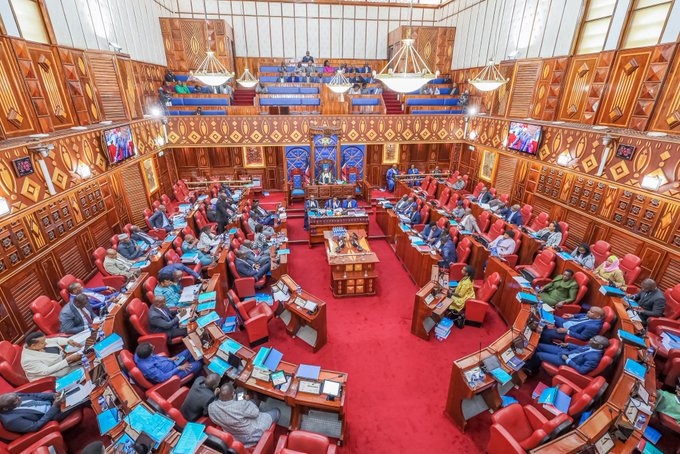
BY DR RICHARD AYAH
TB, full name Tuberculosis, is a disease that kills. TB is one of the top causes of death worldwide and Kenya has one of the highest TB disease burdens. The bacteria that causes TB is called Mycobacterium tuberculosis or M.tb in short.
Say it in Kiswahili and it is easy to remember. African folk lore have many stories of danger. Most of the stories involve animals like lions, hyenas, leopards and so on. Bacteria not so. Perhaps because they are not animals. Maybe because, bacteria are very small and are therefore hard to spot. Possibly it is because human being carries a lot of bacteria.
Fully one third of your body weight is because of the bacteria you carry around with you. Most of the bacteria is in your digestive system, but there are also many bacteria that live on your skin, in your nose and mouth. So, there is a lot of space for M.tb to hide.
Around the world, two billion people carry TB bacteria with them everywhere they go. The bacterium is part of the 30 percent body weight. They have a latent infection, present but not active. If you test them for the bacteria, it will show they have it, but there is no disease.
There are certain circumstances that make TB, the disease more likely to prosper. Let us start in the beginning. A weak, ill thought out, poorly led health system, not focused on prevention creates a disease that we should have banished into history. This is how. TB is a highly contagious airborne disease. Among people living with HIV, the risk of developing TB is 18 times higher than people without HIV.
Kenya has a high burden of people living with HIV. So, countries like Kenya with a high burden of HIV also end up with large numbers of TB infections. This situation is what some people would describe as a challenge, as opposed to a problem. A challenge is a situation we are happy describing, and if it is in the health sector, we look for a donor to sort out for us.
That way we can continue with our lives without having to worry about our health status. A problem on the other hand, is personal, the challenge has now reached your doorstep, and you must take personal action. It is at this point that a public health challenge becomes a health problem. So, reading this I hear you ask again, so, what is the problem?
TB is an interesting bacterium. Compared to other bacteria, it is slow growing, taking at least two weeks, sometimes longer to grow when cultured. That is the way the lab identifies disease. They take a tissue sample from a patient and try to grow the offending organism in the lab. The symptoms of TB can appear quite common initially.
A persistent low cough, especially on cold nights; fever, eventually some weight loss. Usually, the diagnosis is missed the first time and the patient is treated for a viral infection or some other bacterial infection. It is only after these treatments fail, and there is a history of being ill for about a month, that TB is considered.
And then the definitive diagnosis takes another two or three weeks. In that time, this patient has had time to spread the disease to others. So instead of having to treat just one person, there may be others, who all need be screened because the doctor has identified this one patient. That is the problem that needs to be addressed.
In 2024, the focus on the health sector has been about money. About getting enrolled into compulsory social health insurance. One thing that insurance does very poorly, theoretically and therefore practically is manage risk by the other fellow.
Think about it. If you insure your car and the other driver does not, who pays when the other drivers passengers get injured in a car crash? We start by looking for who to blame, then we try to find out who has deeper pockets to pay. Even when the insurance is meant to be compulsory, we start by reading the fine print before we take action to repair the damage. It is about the money. Time wise this may be okay for the car, but it is not for an injured human being.
In the same way, TB management is a public health good. It is a disease very common in Kenya. When something is common it does not make sense to insure against it. It is just a bill that needs to be paid. In the case of TB, treatment consists of diagnosis then medicines for the individual patient.
In addition, those who have had close contact with the patient also have to be screened and if found to have the disease are treated as well. Because there is so much latent TB, and it is a disease that takes time to develop, this is not as easy as it sounds, because the doctor must go look for the disease instead of waiting for it to come to the hospital. That is public health, prevention.
The risk we face as a country is that we have chosen a health financing route that does not do well for public health. But our major health problems like TB or HIV, even malaria are public health issues. And as you ponder what will happen next, don’t imagine that going to the gym alone will reduce your bacteria weight.












![[PHOTOS] Uhuru leads Jubilee grassroots meeting in Murang’a](/_next/image?url=https%3A%2F%2Fcdn.radioafrica.digital%2Fimage%2F2025%2F11%2F0b2a49cd-52fb-4a92-b9dc-26e253825a4a.jpeg&w=3840&q=100)




